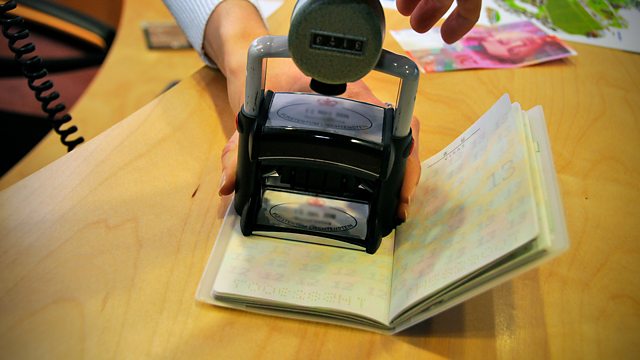Passport Expiry; CO2 Supplies; Men's Cosmetic Surgery
Why the expiry date on your passport may not be valid in the EU.
It's been predicted for years, but are food prices on the rise for real now?
Thousands of holidaymakers have been turned away at airport boarding gates, because of a change in the way passport expiry rules are being applied, now the UK has left the EU. It can mean that some travellers, with as much as 12 months to run on their passport, may not be allowed to travel in the EU. Some people caught out have lost holidays, others have spent hundreds of pounds paying to get a fast-tracked passport.
For years, the price of our groceries has been really stable, with only modest price increases. The big supermarkets, competing against each other on price, have absorbed extra costs or passed them on to their suppliers. But now there are signs that many prices are starting to rise. It's being put down to a multitude of pressures on the food supply industry. It is likely to mean fewer promotions when we shop for our food. We hear an expert view on how our grocery bills might change in the next year.
Cosmetic surgery was falling in popularity in the year before the pandemic. It was down by 24% for women and 19% for men. Those figures are from the British Association of Aesthetic Plastic Surgeons. It's not clear whether that downward trend will continue once we open up fully again. We hear from a man who's had a procedure and from an industry expert and ask what might be behind the downward trend.
It is not the first time that we have suffered a shortage of C02. It happened in 2018 and again in 2020. We were about ten days away from gaps on supermarket shelves when the government stepped in to pay a company that supplies 60% of the carbon dioxide we need. It had stopped production at two UK plants. It's now being paid to start them up again but it isn't a permanent solution. Grant Pearson runs a factory on Teeside that also produces and sells carbon dioxide. He's the Commercial Director of Ensus UK. It makes bioethanol to go into petrol. Professor Jon Gluyas knows a lot about this market. He's the Executive Director of the Durham Energy Institute.
Four smaller energy suppliers have ceased trading in recent days - two last week and two the week before. This week, the boss of a fifth firm Green, said its prospects are “looking bleak”. It has 250,000 customers. WE spoke to Andy Harris, one of the directors at Utility Point. It collapsed two weeks ago leaving 200,000 customers. It was the 15th biggest energy company in the UK.
There are lots of fraudsters advertising online. They pay the internet search engines to advertise, just like legitimate companies do. It means that when you search for investments or pension advice, the results you see can include adverts from criminals hoping to fleece you. Now Aviva, one of Britain's biggest insurance and pensions companies, is joining calls for the search companies, like Google, to have a new legal responsibility to weed out those fraudulent ads. They want that to be included in a new Online Safety Bill that's going through parliament. I spoke to Rob Lee, director of fraud prevention at Aviva, who explained why they wanted the scope of the bill to be extended.
Producer: Kevin Mousley
Presenter: Winifred Robinson



